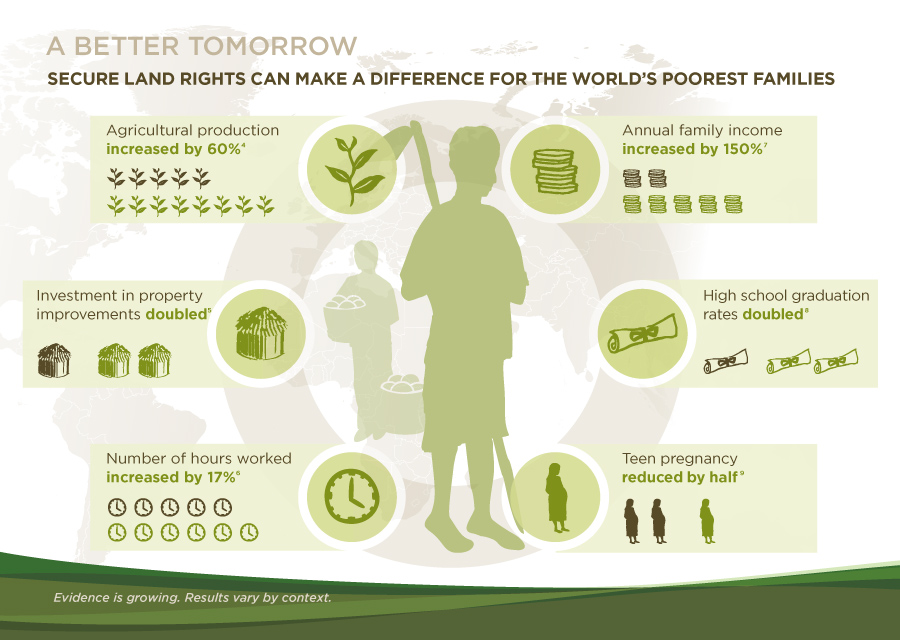New Guidelines on Land Tenure Finalized

On 9 March 2012, the FAO, its members and partners finalized the intergovernmental negotiations on the Voluntary Guidelines on Governance of Tenure of Land, Fisheries and Forests in the context of National Food Security.
Some 96 member countries along with civil society organizations, UN agencies and other international organizations, farmers associations, and private-sector representatives took part in three rounds of negotiations led by an Open Ended Working Group of the Committee on World Food Security (CFS). The final round of negotiations was held at FAO’s headquarters in Rome 5–9 March. This follows a series of sectoral and regional consultations, including the Near East regional meeting at Amman in May 2010, and a joint European, Central Asia and MENA civil society consultation the following July.
The Guidelines set out principles and internationally accepted standards for responsible practices in the administration of land and other resources. They provide a framework that governments should use when developing their strategies, policies, legislation and programs within the state. Government authorities bear the principal responsibility to uphold these minimum standards. Many of the actual Guidelines derive from State obligations under international law and prior commitments. The private sector, civil society and citizens bear a responsibility and challenge to scrutinize States’ compliance with the Guidelines.
The civil society participation in the drafting process consistently has upheld human rights law as the framework for the drafting process. HIC-HLRN has been particularly active in providing text; developing the legal framework; addressing the treatment of land and natural resources in situations of conflict, occupation and war; and including rights to remedy and reparations for victims of gross violations.
These Voluntary Guidelines are intended to assist States, civil society and the private sector in improving the governance of tenure, and thus contribute to alleviating hunger and poverty, empower the poor and vulnerable, protect and enhance the environment on a balance with national and local economic development, and reforming public administration.
The final step remains for the CFS to adopt the Guidelines at a special session in Rome in mid-May. Thereafter, the focus will shift to the implementation and monitoring. You can download the final English-language version of the Guidelines here.
|